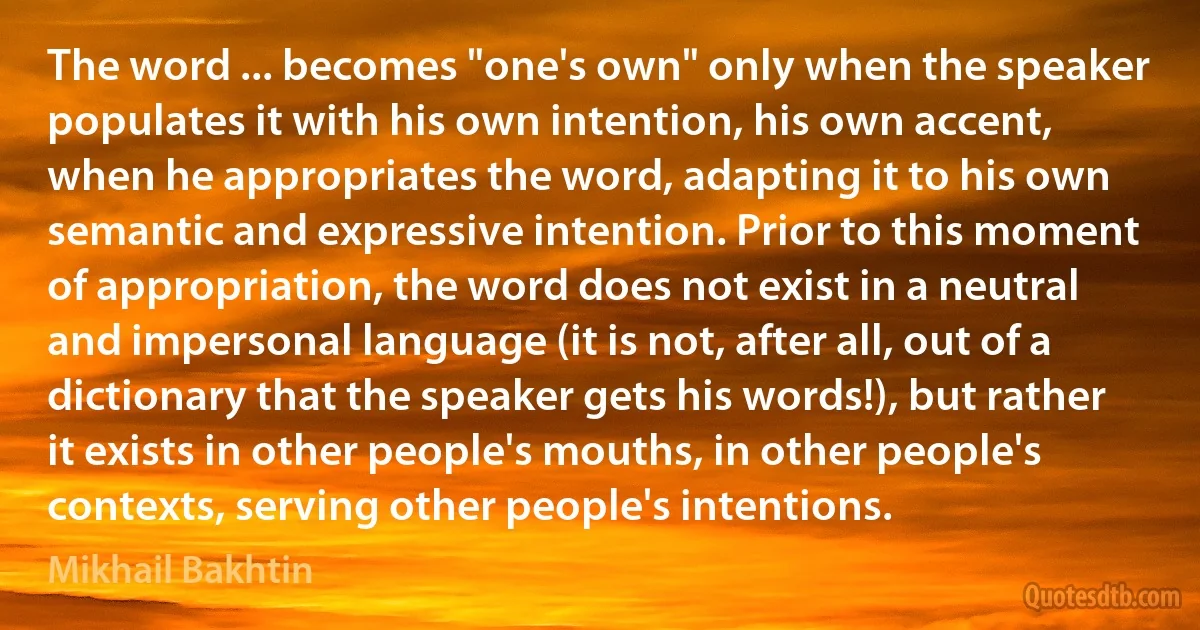
The word ... becomes "one's own" only when the speaker populates it with his own intention, his own accent, when he appropriates the word, adapting it to his own semantic and expressive intention. Prior to this moment of appropriation, the word does not exist in a neutral and impersonal language (it is not, after all, out of a dictionary that the speaker gets his words!), but rather it exists in other people's mouths, in other people's contexts, serving other people's intentions.
Mikhail BakhtinRelated topics
accent appropriation expressive impersonal language moment word words semanticRelated quotes
A novel is a mirror carried along a high road. At one moment it reflects to your vision the azure skies at another the mire of the puddles at your feet. And the man who carries this mirror in his pack will be accused by you of being immoral! His mirror shews the mire, and you blame the mirror! Rather blame that high road upon which the puddle lies, still more the inspector of roads who allows the water to gather and the puddle to form.

Stendhal
I certainly wouldn't compare the rewards of watching one's children grow and mature with that of money piling up at the box office. Both are pleasant, but to varying degrees. As the old saying goes, you can't take an audience home with you. You can't depend on the loyalty of fans, who, after all is said and done, are just faceless people one seldom sees. And few stars have their fans forever. But a child is forever. That bond and relationship is timeless and doesn't depend on your looks, age or popularity at the moment.

Julie Andrews
It's an irritating reality that many places and events defy description. Angkor Wat and Machu Picchu, for instance, seem to demand silence, like a love affair you can never talk about. For a while after, you fumble for words, trying vainly to assemble a private narrative, an explanation, a comfortable way to frame where you've been and whats happened. In the end, you're just happy you were there - with your eyes open - and lived to see it.

Anthony Bourdain
For the first time in history, men and women are seriously exploring the possibilities of relationships based on separateness rather than togetherness. Instead of clinging to Yahweh, to a rigid set of laws established by a jealous Father-God who will rant in fury if he is disobeyed, they are simply ignoring that ranting, walking away from it, and attempting to put their trust in the irrational. In other words, they are trying to live by the spirit.

Marion Woodman
When we look to presumed sources of origin for competing evolutionary explanations of the giraffe's long neck, we find either nothing at all, or only the shortest of speculative conjectures. Length, of course, need not correspond with importance. Garrulous old Polonius, in a rare moment of clarity, reminded us that "brevity is the soul of wit" (and then immediately vitiated his wise observation with a flood of woolly words about Hamlet's Madness.)

Stephen Jay Gould
